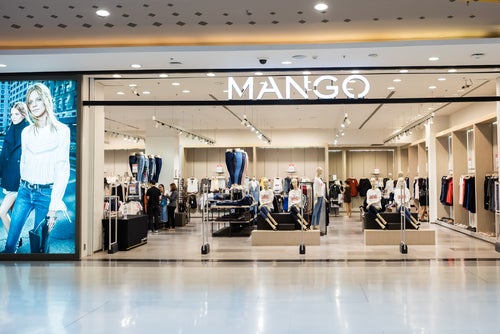
Alongside I:CO, a subsidiary of the Soex group, Mango will locally manage the garments collected in its Committed Box containers, in which the firm’s customers deposit the garments they no longer wear to give them a second life. The agreement with I:CO covers the markets of Germany, Poland, Switzerland and Turkey.
I:CO will be responsible for collecting the garments deposited in Mango’s Committed Box containers and will sort them according to the second life they may have: reutilise them (garments that can be worn are distributed in the second-hand channel); reuse them (if they cannot be reutilised, they will be used for other types of activities) or recycle them (the garments can be transformed into textile fibres for industrial uses).
The aim of the agreement with I:CO is to manage the textile waste collected in each country through a local partner. Until now, the waste collected in Mango stores has been managed from Spain. Thanks to this agreement with a local partner, Mango will be able to process them locally, thus reducing its carbon footprint and optimising inverse logistics.
In Spain, all the items collected are donated and processed at the Koopera recovery and recycling centre, which forms part of Moda Re, a group of social initiative cooperatives and non-profit making work placement organisations promoted by Cáritas.
In parallel with the agreement signed with I:CO, Mango is currently in discussions with other potential local partners to manage waste locally in each country where the Committed Box project has been implemented. Customers can deposit textiles and footwear, irrespective of the brand, in the Committed Box containers.
The Committed Box project was created as a pilot in 2015 which saw clothing recycling containers placed in stores in major Spanish cities. Today, Committed Box containers can be found in all Mango company stores in 15 countries (Andorra, Austria, Belgium, France, Germany, Ireland, Italy, Luxembourg, the Netherlands, Portugal, Russia, Spain, Switzerland, Turkey and the United Kingdom) and in selected stores in Croatia.
In 2021, the project was extended to five new countries: Austria, Italy, Turkey, Switzerland and Russia, with a total of 105 new containers. All the franchise stores in these six countries collect used clothes, irrespective of whether they have a container or not. At the close of 2021, 759 stores in the Mango network had Committed Box containers.
In 2019, the Committed Box project joined the Mango customer loyalty programme, Mango Likes You. As part of the Mango Likes You programme, customers who recycle their used clothing in Committed Box containers receive Likes in their accounts, which they can redeem for cinema tickets and discounts, or donate to social action projects.
The Committed Box project aims to align Mango’s business to the Sustainable Development Goals for responsible consumption (SDG 12) and also forms part of the company’s sustainability strategy.
Mango’s sustainability director, Beatriz Bayo, notes moving forward in its circuar economy strategy is one of the pillars of the company’s sustainability goals.
“For this reason, we are working on extending our Committed Box project through agreements like this one, working in coalition with local partners that will allow us to contribute on a local level in every country where the project is implemented”.
Just Style spoke to Bayo and Mango’s head of sourcing Andres Fernandez in an exclusive interview last year, discussing how transparency, collaboration and trust are key to a greener future and building back better from the Covid-19 pandemic.



